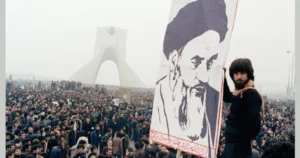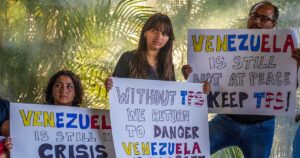Urgent Measures Needed to Simplify Remittance Flows to Bangladesh

Bangladesh’s economy heavily relies on remittances from its expatriate community. In the 2024–25 fiscal year, overseas Bangladeshis sent nearly $30 billion to the country, marking an all-time high. In June 2025 alone, $2.53 billion was remitted. While this massive inflow strengthens Bangladesh’s foreign currency reserves, sending money home remains a complex and cumbersome process.
Those wishing to transfer funds directly to educational institutions, mosques, hospitals, or charitable organizations face layers of bureaucracy, including approvals from the NGO Affairs Bureau, banking hurdles, and lengthy administrative procedures. This discourages expatriates and hampers essential funding for development projects.
Experts attribute the problem to unnecessary complexities and outdated policies. The NGO Affairs Bureau, originally established during Ershad’s government as a “one-stop service,” has now become synonymous with red tape. There is a growing call to modernize this system, enabling easier direct remittances not only for individuals but also for organizations initiated by expatriates.
International examples are instructive. The Philippines has long recognized overseas income as a key driver of its national economy. It allows approved money transfer companies and mobile wallets alongside banks, enabling Filipinos abroad to send money directly to families or institutions. India has implemented similar measures, combining simplified banking channels with digital platforms, allowing workers in the Middle East to send funds to villages within minutes. Sri Lanka, amid a recent economic crisis, has incentivized remittances and introduced a “fast-track service” at the government level, encouraging expatriates to use legal channels.
Bangladesh needs to acknowledge these realities. Expatriates are willing to send at least $200 annually, with many ready to contribute thousands for charitable purposes. However, cumbersome procedures, multiple approval steps, and banking fees diminish their motivation. A modern, online-based one-stop service linking the NGO Affairs Bureau, Bangladesh Bank, and relevant departments could resolve many issues. Simplified documentation, clear timelines, and inclusion of fintech and mobile wallets would enable faster, safer transfers.
Questions remain: why can an expatriate in America or Europe, without relatives in Bangladesh, not directly send money to a preferred school, hospital, or organization? Why should funds be trapped in bureaucratic red tape when foreign currency inflows are vital for the national economy? Remittances reflect not only financial support but also the emotional and civic commitment of expatriates. Simplifying this process would boost both foreign currency inflows and social development.
Dr. Ziauddin Ahmed, organizer of the 2025 New York International Trade Fair and Chamber Expo, emphasized that even small contributions from expatriates can help tackle national challenges. Yet, government procedures continue to discourage them. Many expatriates are unaware that they can send dollars to individual beneficiaries but cannot directly fund organizations unless the entities are NGO-registered—despite the institutions already having proper government approvals.
Several business-friendly steps have been taken by the Bangladeshi government to increase remittances, primarily in investment-driven channels. But similar initiatives are lacking for social and charitable sectors. Private contributions in social development directly benefit the general population and, in turn, ensure substantial remittance inflows. Proper transparency mechanisms through relevant government departments could facilitate this process efficiently.
Former government adviser and private development expert Rasheda K. Chowdhury highlighted that the NGO Affairs Bureau, originally meant to prevent harassment, has become a new source of bureaucratic obstacles. She called for urgent simplification of procedures for accepting donations from expatriates as remittances.
During a recent seminar in New York, journalists noted that reports on remittances are critical and that funds are increasingly being sent legally rather than through informal channels. Proposals included easier procedures for CIP (Commercially Important Person) recognition, mobile and fintech-based remittances, and a “Remittance Important Person” (RIP) initiative at airports to ensure secure, fast transfers.
Expatriates also raised concerns about banking security, family protection, increasing incentives from 2.5% to 3%, and using a portion for insurance. They suggested opening official remittance centers abroad and ensuring smooth service at airports. Many expatriates resort to foreign-owned money exchanges and apps after banking hours, risking fraud and informal transfers.
Experts emphasize that Bangladesh must urgently adopt a 24/7 platform or app-based system, simplify procedures, and make remittances transparent and efficient. Otherwise, expatriates may be discouraged despite their willingness to contribute, slowing national development and limiting foreign currency inflows. Expatriate earnings are the lifeblood of Bangladesh’s economy, and trapping them in bureaucratic red tape is counterproductive.






